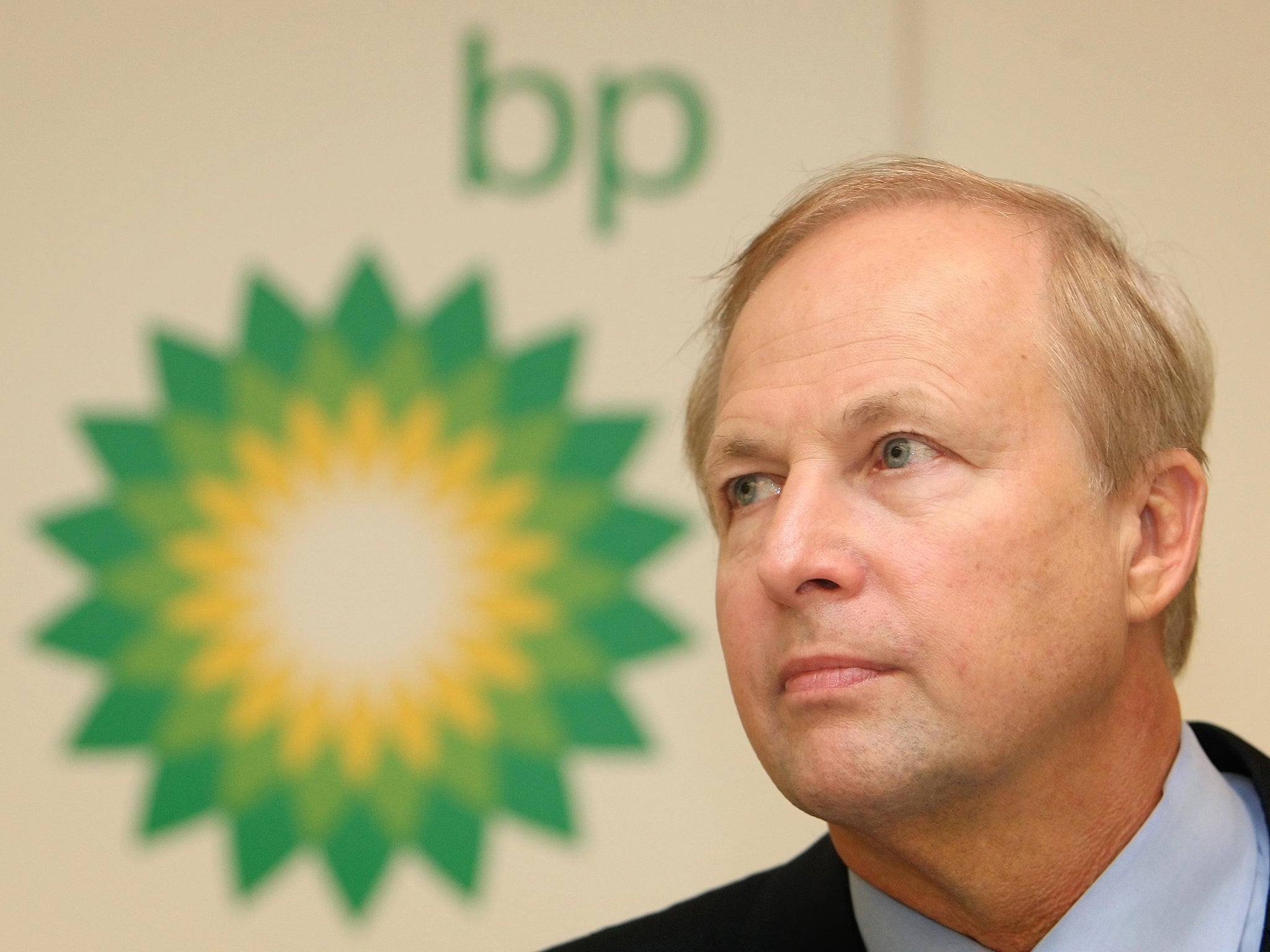BP: Why a messy debate over the CEO's pay counts as progress after Deepwater Horizon
The oil giant's compensation bill is falling, and it is investing and making profits again

Your support helps us to tell the story
From reproductive rights to climate change to Big Tech, The Independent is on the ground when the story is developing. Whether it's investigating the financials of Elon Musk's pro-Trump PAC or producing our latest documentary, 'The A Word', which shines a light on the American women fighting for reproductive rights, we know how important it is to parse out the facts from the messaging.
At such a critical moment in US history, we need reporters on the ground. Your donation allows us to keep sending journalists to speak to both sides of the story.
The Independent is trusted by Americans across the entire political spectrum. And unlike many other quality news outlets, we choose not to lock Americans out of our reporting and analysis with paywalls. We believe quality journalism should be available to everyone, paid for by those who can afford it.
Your support makes all the difference.Let’s not kid ourselves, the Deepwater Horizon disaster still casts a long and dark shadow over BP.
The company’s latest results make that clear. It continued to add to the vast pile of money set aside to compensate the victims of a disaster that killed 11 people and saw black gunk pouring into the Gulf of Mexico nearly seven years ago, all over local wildlife and the livelihoods of people living in the vicinity.
The company’s cumulative payout now stands at a staggering $62.6bn (£50.4bn). The 2016 charge of $6.9bn looks like another enormous addition, until you consider that it compares to a charge of $12.3bn in 2015 and therefore represents something like progress.
Lots of people are saying that BP is now through the worst, but that’s entirely the wrong way of looking at it. You don’t get “through” an event that kills people, pollutes a vast area and produces losses like that. You learn from it, and ensure that it becomes embedded in the corporate DNA – to the extent that the next time an ambitious executives suggests scrimping on irksome safety requirements to save a bit on costs, they get fired.
Still, it remains true that the business is now at least making money, albeit a lot less money than BP’s analysts had been expecting. Some 29 per cent less in the final three months of the year, if you compare BP’s net income with their consensus forecast.
The company is also investing in new projects. Given the environmental damage caused simply by burning oil when you’re not spilling it into the sea, it’s hard not to view that fact with anything other than mixed feelings. But having continually preached the virtues of investing for the long term, I’d be a hypocrite if I failed to recognise that BP is doing so.
It is, in fact, taking risks to look to its future. The company makes clear that it needs the price of Brent Crude to sit at $60 a barrel for its cash flow to cover its investment plans and the promises it has made to shareholders over dividends.
By contrast, Shell is more or less happy at today’s $55 or so, as is Exxon Mobil. BP therefore represents the riskier option, notwithstanding the pall cast over the company by its recent history.
It would only take Opec members to start increasing production for things to get painful, and for those newly minted profits to evaporate. At the very least, cost cuts could be expected to follow.
Still, BP’s board members have more reasons to be cheerful than they have had for a while, which makes what they decide to do about chief executive Bob Dudley’s pay interesting.
Shareholders voted against the company’s remuneration report last time around – no wonder, given BP paid Mr Dudley £14m for presiding over a huge loss. While that was only an advisory vote, it’s not the sort of thing a company wants to see happening while trying to restore its reputation.
But if we see another messy debate over Mr Dudley’s pay in the wake of him receiving a raise for those profits, at least there will be one consolation: it gets people talking about something other than the mess BP’s product made across the Atlantic.
Join our commenting forum
Join thought-provoking conversations, follow other Independent readers and see their replies
Comments